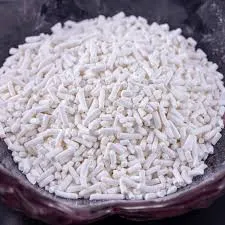
food additives used in bakery products
Food Additives Used in Bakery Products
Bakery products are a staple in many diets around the world. From bread and pastries to cakes and cookies, the variety of baked goods is extensive. To achieve the desired taste, texture, and shelf-life, food manufacturers often incorporate a range of food additives. These substances not only enhance the quality of the baked products but also improve their safety and extend their longevity.
One of the most common categories of food additives used in bakery products is preservatives. These are essential in prolonging the shelf-life of items like bread and cakes, which are prone to spoilage due to mold and bacteria. Common preservatives found in bakery items include calcium propionate and sodium benzoate. Calcium propionate inhibits mold growth, which is particularly important for bread that may sit on shelves for days or weeks before being consumed. Sodium benzoate, on the other hand, is often used in sweet baked goods to prevent yeast spoilage and maintain freshness.
Food Additives Used in Bakery Products
Leavening agents are a crucial component in nearly all baked goods, providing the leavening action that makes bread rise and gives cakes their light and fluffy texture. These additives include baking powder, baking soda, and yeast. Baking powder contains both an acid and a base, allowing it to generate carbon dioxide gas when moistened, which causes the dough to expand. Baking soda, on the other hand, requires an acid to activate, releasing carbon dioxide and giving rise to baked products. Yeast, a living organism, ferments sugars to produce carbon dioxide and alcohol, contributing both to the leavening process and to the unique flavor of bread and other yeast-based products.
food additives used in bakery products

Flour treatment agents are another important class of food additives in bakery products. These agents, which include ascorbic acid and dough conditioners, are used to improve the quality of flour and the baked products made from it. Ascorbic acid acts as an oxidizing agent, strengthening gluten and increasing dough elasticity, which is essential for achieving the desired texture in bread. Other dough conditioners, such as vital wheat gluten, may be added to enhance the protein content and improve the structure of the final product.
Moreover, flavors and colorants play a vital role in bakery products. Natural and artificial flavorings can enhance the taste profile of baked goods, making them more appealing to consumers. Common flavor additives include vanilla extract and almond oil, while colorants such as caramel color can be used to achieve a desirable appearance. The use of these addictive ingredients helps create a consistent taste and look in mass-produced bakery items.
However, the increasing consumer demand for clean-label products—those with fewer additives and recognizable ingredients—has prompted many manufacturers to seek alternative solutions. This trend has led to the development of natural preservatives and emulsifiers derived from plant sources. Ingredients like rosemary extract and vinegar are being explored as alternatives to synthetic preservatives, aligning with consumer preferences for healthier options.
In conclusion, food additives are integral to the production of bakery products, enhancing their quality, safety, and shelf-life. While the use of these additives is essential for mass production and consistency, the emergence of consumer awareness regarding food ingredients is reshaping the industry. As manufacturers evolve to meet consumer preferences for cleaner labels, the future of bakery products promises to balance innovation with health-conscious choices.
-
Why Glacial Acetic Acid Food Grade Is Essential in FlavorNewsMay.26,2025
-
Surging Export Growth of Food Additives in ChinaNewsMay.26,2025
-
How Ammonium Nitrate Fertilizer Boosts Crop YieldsNewsMay.26,2025
-
How 1,2,3-Benzotriazole Shields Plastics from UV DegradationNewsMay.26,2025
-
Cyanide in Gold Mining: Protecting People and the PlanetNewsMay.26,2025
-
Aluminum Hydroxide in Modern Sunscreen FormulationsNewsMay.26,2025
-
Understanding Synthetic Rubber OptionsNewsApr.27,2025
Hebei Tenger Chemical Technology Co., Ltd. focuses on the chemical industry and is committed to the export service of chemical raw materials.
-

view more DiethanolisopropanolamineIn the ever-growing field of chemical solutions, diethanolisopropanolamine (DEIPA) stands out as a versatile and important compound. Due to its unique chemical structure and properties, DEIPA is of interest to various industries including construction, personal care, and agriculture. -

view more TriisopropanolamineTriisopropanolamine (TIPA) alkanol amine substance, is a kind of alcohol amine compound with amino and alcohol hydroxyl, and because of its molecules contains both amino and hydroxyl. -

view more Tetramethyl Thiuram DisulfideTetramethyl thiuram disulfide, also known as TMTD, is a white to light-yellow powder with a distinct sulfur-like odor. It is soluble in organic solvents such as benzene, acetone, and ethyl acetate, making it highly versatile for use in different formulations. TMTD is known for its excellent vulcanization acceleration properties, which makes it a key ingredient in the production of rubber products. Additionally, it acts as an effective fungicide and bactericide, making it valuable in agricultural applications. Its high purity and stability ensure consistent performance, making it a preferred choice for manufacturers across various industries.











